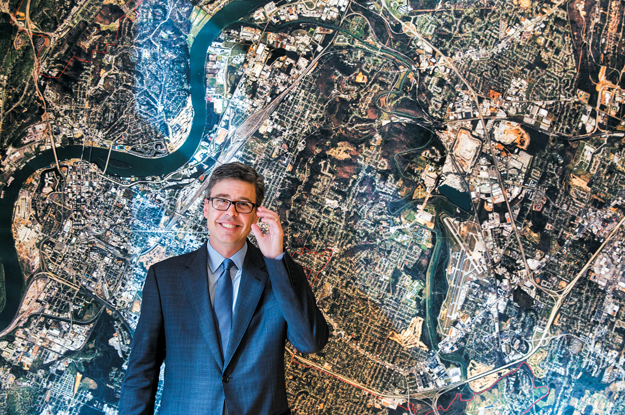Chattanooga, Tennessee, may be best known for the Glenn Miller Orchestra’s 1941 hit, “Chattanooga Choo Choo.” But today, the city of about 173,000 people can also boast the first, most cost-effective and fastest high-speed municipal Internet in the United States.
Chattanooga’s fiber-optic Internet costs $70 a month1 and connects users at one gigabit per second (Gbps)—50 times the average speed of the rest of the U.S.—putting it on a par with Hong Kong, which has the fastest Internet in the world.2 To put that in perspective, it takes about 25 minutes to download a two-hour high-definition film elsewhere in the U.S., but only 33 seconds in Chattanooga. The city also offers a slower 100 megabit per second (Mbps) plan for $58 per month, still light-years ahead of the average U.S. Internet speed of 9.8 Mbps.3
“The Gig,” as the city’s $330 million fiber-optic network is affectionately known, is provided by Chattanooga’s Electronic Power Board (EPB) and is taxpayer-funded: the city raised about $220 million through bonds and received an additional $111 million federal stimulus grant in 2009. The fiber-optic system that Chattanooga’s high-speed Internet relies on was originally created as a smart-grid energy network to enable authorities to rapidly identify the location of power outages and reroute power to minimize network downtime.
But the grid quickly evolved to serve more than energy needs. Since 2009, the network has provided Internet to 61,000 homes and more than 5,000 businesses, and has created over 1,000 jobs.4 While high-speed municipal Internet isn’t cheap, it can make cities more competitive and help reduce service gaps in rural areas where high-speed Internet is unavailable or prohibitively expensive.5
Yet municipal initiatives like the Gig have also put cities in the crosshairs of telecommunications companies.
Chattanooga has confronted lawsuits6 from big companies like AT&T and Comcast, and when those failed to produce results, the companies went after state and federal law to limit municipal broadband expansion.7 But the federal government seems to be on Chattanooga’s side. In February 2015, the Federal Communications Commission voted to allow the city to expand its Internet services outside of Chattanooga—a decision that is likely to be contested.8
Meanwhile, with President Barack Obama making municipal broadband and net neutrality a priority in his 2015 State of the Union Address and Cory Booker, U.S. senator for New Jersey, introducing a municipal broadband bill, it seems that cities are finally on the cusp of a new electronic frontier.






